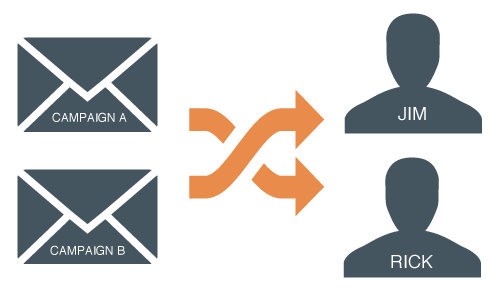Email marketing has become foundational to successful online marketing strategies. It allows businesses to keep in regular contact with their prospects, customers, and influencers to educate and nurture, promote deals, and announce new services, products or events. And, it is more cost-effective than traditional marketing communications vehicles such as direct mail, mass media advertising, etc.
Businesses of all sizes are currently engaging in email marketing campaigns. In fact, according to a 2013 email marketing survey from Vocus (a cloud-based marketing company):
- 91% of businesses found email marketing to be helpful or very helpful to their organization
- 56% of businesses planned to increase email marketing efforts in 2013
Email marketing can be (relatively) simple and quite effective, but the rapid advancement in the capabilities of email marketing systems have led to more robust, intelligent solutions that can better tailor content for each recipient – and that is marketing automation.
So, what exactly is marketing automation, and more importantly, how is it different than regular email marketing?
What is Marketing Automation?
Marketing automation is the next step of email marketing technology. It is a powerful tool that determines each customer’s needs and interests and communicates with them accordingly. Marketing automation learns through interaction, and will help guide customers through the decision-making process, delivering them the content they need when they need it.
What Are the Advantages of Marketing Automation over Traditional Email Marketing?
Regular email marketing cannot follow prospects through a complicated decision-making process. Email marketing involves sending out mass emails to a list. Although the list can be culled and contacts can be hand-picked for specific campaigns, it can become very time-consuming.
Marketing automation automatically knows which prospects to send which emails to, and when. It gently guides them through the decision-making process at their own pace, sending them customized communication until they are confident enough to make a purchase.
Leads are scored by the marketing automation system based on information they have downloaded, the level of interest they have shown, or even by demographic information (for example, a lead with “CEO” in their title might be scored higher than a “Coordinator”). This ensures that your team follows up with the most qualified, interested leads.
Marketing automation can also be more easily integrated with web forms and landing pages than traditional email marketing solutions. For example, the system can tag specific prospects by interest (if that is a form field) and ensure they receive messages that are relevant to them moving forward.
The Bottom Line: Marketing automation allows you to better engage your prospects, ultimately generating more leads and increasing sales. It also saves time spent managing email lists and organizing follow-up communication.
Should Your Organization Implement Marketing Automation?
- Is your typical sales cycle longer than a week?
- Do you want to send targeted email campaigns?
- Do you want to integrate with website forms and landing pages?
- Do you sell to a range of target markets and demographics?
- Do you want to send specialized messages to particular types of customers?
- Are you having difficulty generating qualified leads?
- Are prospects slipping through the cracks, leading to missed opportunities?
If you answered yes to any of these questions, then marketing automation is definitely something your organization needs to consider.
Like this? You might also like:
Marketing Automation: A Critical Piece of the Online Marketing Puzzle
The Case for Lead Nurturing
12 Must-Do’s for Email Marketing Success
Image source: Pardot
- CRM’s In the Age of the Digital Buyer - June 6, 2025
- Generate Sales Leads with Online Marketing - May 1, 2025
- Reach New Customers with Online Marketing - April 2, 2025

